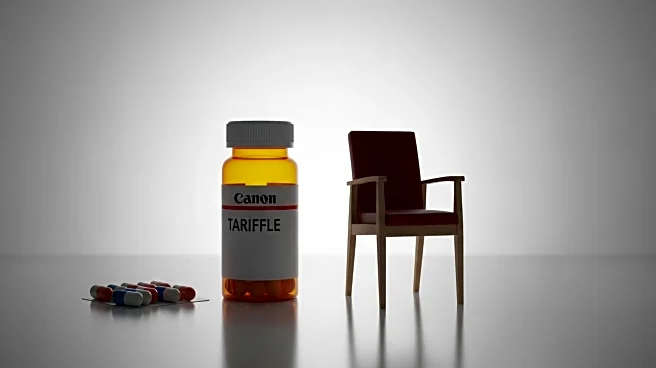What's Happening?
President Trump has announced a series of tariffs aimed at encouraging domestic manufacturing. The tariffs include a 100% levy on patented drugs unless companies establish production facilities in the United States. Additionally, tariffs of 25% on imported heavy trucks, 50% on kitchen and bathroom cabinets and vanities, and 30% on upholstered furniture will be implemented next week. These measures are part of a broader strategy to bolster U.S. manufacturing and reduce reliance on imports. Companies like Eli Lilly are already taking steps to comply by building plants domestically.
Why It's Important?
The tariffs are significant as they could reshape the U.S. manufacturing landscape by incentivizing companies to produce goods domestically. This move may lead to increased investment in U.S. manufacturing facilities, potentially creating jobs and boosting local economies. However, it could also result in higher prices for consumers if companies pass on the increased costs of production. The pharmaceutical industry, in particular, may face challenges in adjusting to these tariffs, impacting drug prices and availability.
What's Next?
As the tariffs take effect, companies will need to decide whether to absorb the costs or relocate production to the U.S. This decision could lead to strategic shifts in supply chains and manufacturing processes. Political leaders and industry stakeholders are likely to engage in discussions about the long-term implications of these tariffs on trade relations and economic growth. Monitoring the response from affected industries will be crucial in assessing the impact of these tariffs.
Beyond the Headlines
The tariffs raise ethical and legal questions about trade practices and international relations. They may lead to tensions with countries that export these goods to the U.S., potentially affecting diplomatic ties. Additionally, the focus on domestic manufacturing could spark debates about environmental standards and labor practices in the U.S. manufacturing sector.









